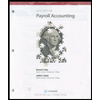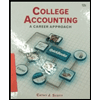
The following two events occurred for Trey Co. on October 31, the end of its fiscal year.
- a. Trey rents a building from its owner for $2,800 per month. By a prearrangement. the company delayed paying October’s rent until November 5. On this date, the company paid the rent for both October and November.
- b. Trey rents space in a building it owns to a tenant for $850 per month. By prearrangement, the tenant delayed paying the October rent until November 8. On this date, the tenant paid the rent for both October and November.
Required
- 1. Prepare
adjusting entries that the company must record for these events as of October 31. - 2. Assuming Trey does not use reversing entries, prepare
journal entries to record Trey’s payment of rent on November 5 and the collection of the tenant’s rent on November 8. - 3. Assuming that the company uses reversing entries, prepare reversing entries on November 1 and the journal entries to record Trey’s payment of rent on November 5 and the collection of the tenant’s rent on November 8.
1.
Prepare adjusting entries that the company must record for these events as of October 31.
Explanation of Solution
Adjusting entries: Adjusting entries are those entries which are recorded at the end of the year, to update the income statement accounts (revenue and expenses) and balance sheet accounts (assets, liabilities, and stockholders’ equity) to maintain the records according to accrual basis principle.
Prepare adjusting entries that the company must record for these events as of October 31.
| Date | Accounts title and explanation | Debit ($) | Credit ($) |
| October 31 | Rent expense (SE-) | 2,800 | |
| Rent payable (L+) | 2,800 | ||
| (To record the accrued rent expense.) |
Table (1)
- Rent expense is an expense account and it decreases the stockholders’ equity by $2,800. Therefore, debit rent expense with $2,800.
- Rent payable is a liability account and it is increased by $2,800. Therefore, credit rent payable with $2,800.
| Date | Accounts and Explanation | Debit ($) | Credit ($) |
| October 31 | Rent receivable (A+) | 850 | |
| Rent earned (SE+) | 850 | ||
| (To record accrued rent income.) |
Table (2)
Justification:
- Rent receivable is an asset account and it is increased by $850. Therefore, debit rent receivable account with $850.
- Rent earned is revenue account and it increases the value of stockholders’ equity by $850. Therefore, credit rent earned account with $850.
2.
Prepare journal entries to record T’s payment of rent on November 5 and the collection of the tenant’s rent on November 8.
Explanation of Solution
Journal entry: Journal entry is a set of economic events which can be measured in monetary terms. These are recorded chronologically and systematically.
Prepare journal entries to record T’s payment of rent on November 5:
| Date | Accounts title and explanation | Debit ($) | Credit ($) |
| November 5 | Rent payable (L-) | 2,800 | |
| Rent expense (SE-) | 2,800 | ||
| Cash (A-) | 5,600 | ||
| (To record the payment of 2 months’ rent.) |
Table (3)
- Rent payable is a liability account and it is decreased by $2,800. Therefore, debit rent payable with $2,800.
- Rent expense is an expense account and it decreases the stockholders’ equity by $2,800. Therefore, debit rent expense with $2,800.
- Cash is an asset account and it is decreased by $5,600 for the payment of rent. Therefore, credit cash account with $5, 600
| Date | Accounts and Explanation | Debit ($) | Credit ($) |
| November 8 | Cash (A+) | 1,700 | |
| Rent receivable (A+) | 850 | ||
| Rent earned (SE+) | 850 | ||
| (To record collection of 2 months’ rent.) |
Table (4)
Justification:
- Cash is an asset account and it is increased by $1,700 for the collection made. Therefore, debit cash account with $1,700.
- Rent receivable is an asset account and it is increased by $850. Therefore, debit rent receivable account with $850.
- Rent earned is revenue account and it increases the value of stockholders’ equity by $850. Therefore, credit rent earned account with $850.
3.
Prepare the reversing entries on November 1 and the journal entries to record T’s payment of rent on November 5 and the collection of the tenant’s rent on November 8.
Explanation of Solution
Reversing entry: Reversing entries are recorded in response to the accrued liabilities and accrued assets that were generated by adjusting entries at the end of an accounting period. These reversing entries are optional. The objective of the reversing entry is to simplify the company’s record keeping.
Prepare the reversing entries on November 1:
| Date | Accounts title and explanation |
Debit ($) |
Credit ($) |
| November 1 | Rent payable (L-) | 2,800 | |
| Rent expense (SE+) | 2,800 | ||
| (To record the reverse entry for accrual of rent expense.) |
Table (5)
Justification:
- The adjusting entry is to be reversed, thus, to reverse the liability of rent payable created. Therefore, debit the rent payable account with $2,800.
- The rent expense is recognized and shall be reversed by crediting the rent expense account.
| Date | Accounts title and explanation |
Debit ($) |
Credit ($) |
| November 1 | Rent earned (SE-) | 850 | |
| Rent receivable (A-) | 850 | ||
| (To record the reverse entry for accrual of net income.) |
Table (6)
Justification:
- The rent earned is recognized, which was earlier credited while recording the adjusting entry, shall be reversed by debiting the rent earned Account.
- The adjusting entry is to be reversed, thus, to reverse the asset of rent receivables created which was debited while recording the adjusting entry, credit the rent receivable Account.
Journal entry: Journal entry is a set of economic events which can be measured in monetary terms. These are recorded chronologically and systematically.
Prepare the journal entries to record T’s payment of rent on November 5 and the collection of the tenant’s rent on November 8:
| Date | Accounts title and explanation | Debit ($) | Credit ($) |
| November 5 | Rent expense (SE-) | 5,600 | |
| Cash (A-) | 5,600 | ||
| (To record the payment of 2 months’ rent.) |
Table (7)
- Rent expense is an expense account and it decreases the stockholders’ equity by $5,600. Therefore, debit rent expense with $5,600.
- Cash is an asset account and it is decreased by $5,600 for the payment of rent. Therefore, credit cash account with $5, 600
| Date | Accounts and Explanation | Debit ($) | Credit ($) |
| November 8 | Cash (A+) | 1,700 | |
| Rent earned (SE+) | 1,700 | ||
| (To record collection of 2 months’ rent.) |
Table (8)
Justification:
- Cash is an asset account and it is increased by $1,700 for the collection made. Therefore, debit cash account with $1,700.
- Rent earned is revenue account and it increases the value of stockholders’ equity by $1,700. Therefore, credit rent earned account with $1,700.
Want to see more full solutions like this?
Chapter 4 Solutions
Principles of Financial Accounting.
- I am looking for help with this general accounting question using proper accounting standards.arrow_forwardCan you solve this general accounting question with accurate accounting calculations?arrow_forwardWhich of the following best describes owner’s equity?A. Assets minus liabilitiesB. Total assetsC. Revenues minus expensesD. Retained earnings onlyarrow_forward
- Please provide the solution to this financial accounting question with accurate financial calculations.arrow_forwardRustic Table Restaurant had a 12% return on a $90,000 investment in new dining facilities. The investment resulted in increased sales and an increase in income that was 5% of the increase in sales. What was the increase in sales? Provide answerarrow_forwardno chatgpt Which of these is considered a permanent account?A. Salaries ExpenseB. RevenueC. Retained EarningsD. Dividendsarrow_forward
- Can you solve this general accounting problem with appropriate steps and explanations?arrow_forwardCan you help me solve this financial accounting problem using the correct accounting process?arrow_forwardWhich of these is considered a permanent account?A. Salaries ExpenseB. RevenueC. Retained EarningsD. Dividendsarrow_forward

 College Accounting (Book Only): A Career ApproachAccountingISBN:9781337280570Author:Scott, Cathy J.Publisher:South-Western College Pub
College Accounting (Book Only): A Career ApproachAccountingISBN:9781337280570Author:Scott, Cathy J.Publisher:South-Western College Pub College Accounting (Book Only): A Career ApproachAccountingISBN:9781305084087Author:Cathy J. ScottPublisher:Cengage Learning
College Accounting (Book Only): A Career ApproachAccountingISBN:9781305084087Author:Cathy J. ScottPublisher:Cengage Learning





